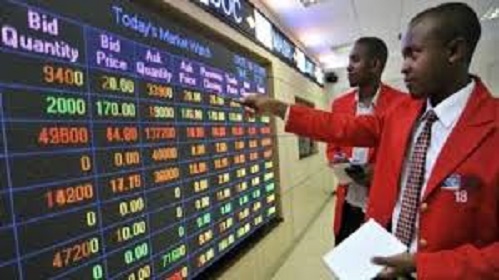
Moody’s Investors Service, on Tuesday downgraded Nigeria’s long-term issuer and senior unsecured debt rating to B2 from B1 and the senior unsecured MTN programme rating and the provisional senior unsecured debt rating to (P)B2 from (P)B1, blaming the government’s failure to address key structural weakness resulting from the oil price shock.
The rating, which is five steps into junk territory, place Nigeria at the same level as fellow oil producer and OPEC member, Angola, as well as Cameroon and Uganda.
Although the rating outlook remains stable, Moody’s said debt levels remain contained and that “notwithstanding recent cyclical improvements, the government’s balance sheet remains structurally exposed to further economic or financial shocks, with interest payments very high relative to revenues and deficits elevated despite cuts in capital spending.
“The stable outlook reflects the fact that the likelihood of a shock occurring that would further impair Nigeria’s economic and fiscal strength remains low, with external vulnerabilities having receded supported by the rebound in oil production, the current account projected to remain in surplus, and reserves boosted through external borrowings and increased foreign capital inflows. Medium-term growth prospects are also credit supportive.”
Moody’s also lowered the long-term foreign-currency bond ceiling to B1 from Ba3 and the long-term foreign currency deposit ceiling to B3 from B2, while the long-term local-currency bond and deposit ceilings remain unchanged at Ba1.
The first driver of the rating action, the statement continued, “is Nigeria’s slower than anticipated progress in addressing its key structural weakness, which is its significant reliance on a single sector to drive government revenues as well as growth and exports.
“The oil shock severely weakened Nigeria’s public finances, with general government revenues suffering a 50% decline between 2014 and 2016 (from 10.5% of GDP to 5.3% respectively). The damage wrought by the oil price shock has not yet been undone, and the downgrade reflects Moody’s view that this weakness in Nigeria’s public finances will remain for some years to come; Moody’s forecasts general government revenue to average only 6.4% of GDP over 2017-2019, the lowest level of any sovereign rated by Moody’s.”
The nation would qualify for an upgrade, the agency noted, if it successfully implements structural reforms, particularly public resource management and broadening of the revenue base; there is material improvement in institutional strength with respect to corruption, government effectiveness, and the rule of law. Rebuilding large financial buffers sufficient to shelter the economy against a prolonged period of oil price and production volatility, the statement stressed.
On the reverse side, Moody’s said “Nigeria’s B2 issuer rating could be downgraded if Moody’s concluded that the sovereign’s exposure to a financing shock had materially increased, perhaps because of continued erosion of debt affordability or a material deterioration in the government’s balance sheet in some other respect. Other factors include the presence of a “materially weaker medium-term growth, for example as a result of delays in implementing key structural reforms, especially in the oil sector, or continued militancy in the Niger Delta, which undermine the level of oil production over the medium-term.”
The results of the authorities’ efforts to increase non-oil revenue since late 2015, which have focused on improving compliance and broadening the tax base, have been limited and negatively impacted by a contractionary environment in 2016.
The Federal Revenue Inland Service (FIRS) has been able to increase non-oil revenue by 15% in nominal terms as of September 2017 compared to 2016, but this is at a pace that is below nominal GDP growth. Meanwhile, the independent re-appropriation of revenues from the ministries, departments and agencies (MDAs) has yielded less than projected results for two consecutive years, highlighting the considerable execution risks inherent in the transition to a less oil-dependent budget. Hence, while the rebound in the oil price and in oil production has led to oil revenues out performing the 2017 budget target, non-oil tax revenues are still below target with a 30% shortfall for the federal government at the end of September compared to budget and likely a similar situation for states and municipalities.
‘The challenges on the revenue side will negatively impact potential growth. Since 2014, the authorities have offset revenue shortfalls with large cuts in much needed capital expenditure, a trend that Moody’s expects to continue. In 2017 the government is likely to only match 2016 capital spending that reached NGN1.2 trillion (or 1.2% of GDP), given the 2017 budget is expected to run on a six-month cycle (for capital expenditures only) as the 2018 budget is likely to be passed in January. This is less than 50% of the 2017 budget for capital spending and still an insufficient level to have a meaningful impact on the large infrastructure gap that significantly constrains the country’s potential growth,” it added.














